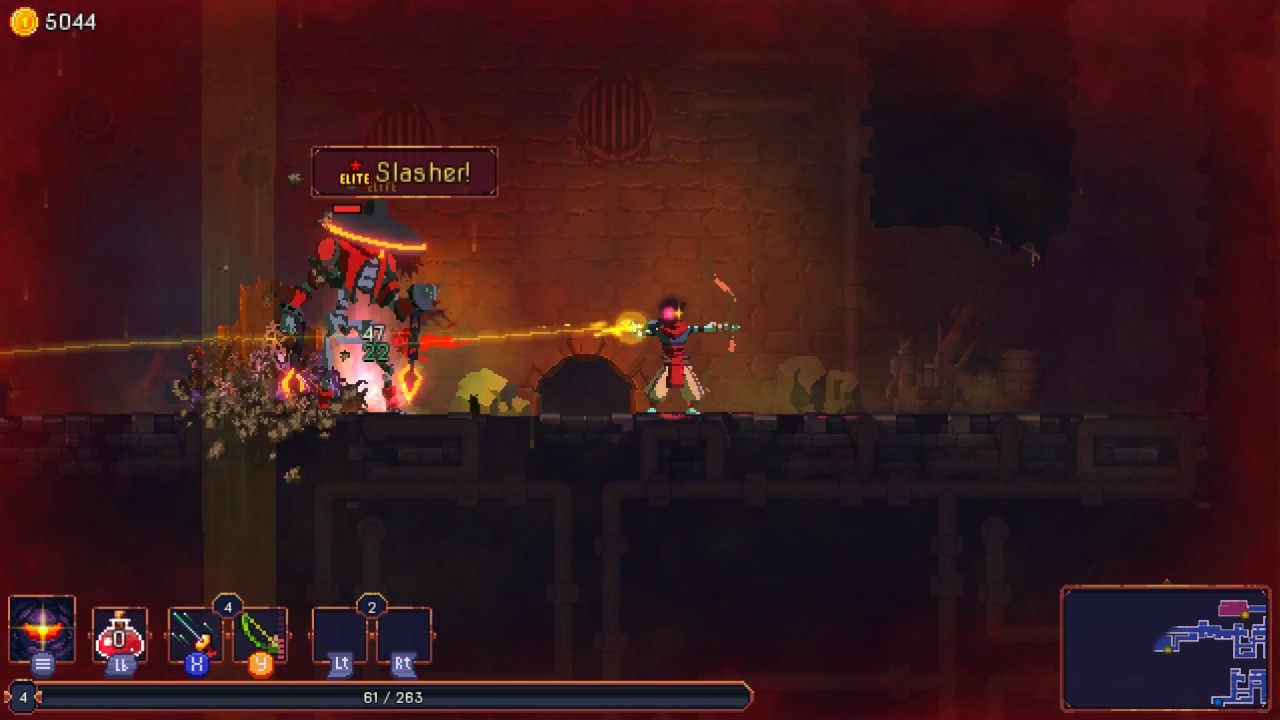The developers at Motion Twin have released a new dev diary elaborating on the benefits of using procedural generation in their stylish upcoming roguevania game titled Dead Cells.
By mixing procedural generation with metroidvania game design, Motion Twin wants to provide players with replayability and discoverability, but also maintain a sense of gated progression. However, instead of backtracking through environments, they let death and rebirth be the mechanic for forward progression in Dead Cells.
Here are three benefits to using procedural generation in a metroidvania style of game:
1. Procedural generation can provide you with more content than what we could ever do if we tried designing everything by hand.
2. It allows the developer to shift where the difficulty lies in the game. Instead of asking the player to memorize the level and enemy positions in order to make it through, the developer can reward reflexes and instinctive play, which is something they’ve found to be much more interesting overall.
3. It brings a lot of replay value and diversity to each run, which is fairly important when talking about a game with permadeath as a central mechanic.
“Unfortunately, relying too much on procedural generation leads to bland level design, often feeling messy and rather inconsistent,” said Steve Filby, marketing manager at Motion Twin. “A good example of the middle ground between pure procedural generation and fully handmade is Spelunky. Their approach allowed them to get that consistent feeling while keeping a lot of diversity. We’ve basically adopted the same approach for Dead Cells.”
Brought together in beautiful 2D pixel art with a very modern look, Motion Twin is on track to releasing Dead Cells this Spring.
About Dead Cells:
Dead Cells is a roguevania action-platformer, allowing you to explore a sprawling, ever-changing castle… assuming you’re able to fight your way past its keepers. To finish the game, you’ll have to master 2D souls-like like combat with the ever-present threat of permadeath looming. No checkpoints. Kill, die, learn, repeat.
